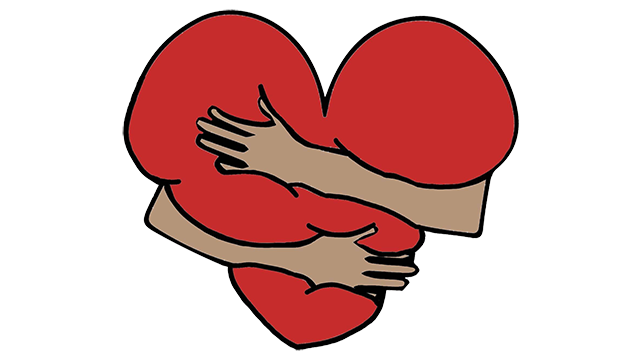The holidays can be an incredibly festive time for students and their loved ones to join in union in celebration of the year. But as the campus empties and students return home to their families, this time of year can also serve as a grim reminder of grief for those on the outside lacking a strong natal support system.
For that reason, this time of year gives us an opportunity to reflect on the ways in which even the most functional of families, in all of their best intentions and well wishes, may have followed patterns of abuse while trying to protect us from institutionalized oppression. Intergenerational abuse and the ways it is fueled by historical state-sanctioned violence was a major theme at the Mid-October LA Meet-Up of the NoName Book Club.
In the grass of Leslie Shaw Park, sat 25 Los Angeles community members coming together to discuss Heavy by Kiese Laymon, Belly of the Beast: The Politics of Anti-Fatness as Anti-Blackness by Da’shaun L. Harrison and revolutionary politics throughout. Complete with readings aloud the safe space was church-like, sacred yet inclusive, the circle expanding for every newcomer.
Book club leaders and one-half of the Radical Hood Library organizers, Micheal and Fatima, led members through an exploration of the intersection of health, insecurity, anti-Blackness, fatphobia, intergenerational violence and how intra-community policing has created more harm than good as we try to heal from the effects of historical attacks on our humanity as a people.
Much of this violence we experienced was birthed as a way to protect each other from state violence and for good reason. The book, Belly of the Beast, explored the politics of the conditions that lead to the constant feelings of unsafety Heavy describes through anecdote.
Harrison guides readers through the nuances of state-sanctioned violence against fat black people through the intertwined histories of the War on Drugs, the War on Obesity and recent police killings of unarmed fat Black men, whose largeness in size is often used as justification for their senseless murders. Throughout Belly of the Beast, Harrison asks to think of a world beyond radical self-love, desire, gender, modern conceptions of health, and especially beyond abolition.
As Black people, we are often confronted with the harsh truth that there is no protection from state violence, not physically, not mentally, and not socially. But as Justine, NoName book club attendee, noted “there is protection when we protect each other.” However, with most of us being only three to five generations removed from slavery, and even less than that removed from the racialized tragedies that occurred after, it is clear to see the implications that this has had on our family structure, how we treat and think of each other and ourselves.
For example, in his painfully truthful letter to his mother, Heavy, the memoirist Kiese Layman describes the harms his mother inflicted on him while trying to preemptively shield him from harm at the mercy of white hands. Her protection often took the form of policing her son’s way of speech, dress, demeanor and his weight. Through this, she aided society in instilling many psychological complexes in him, as her preferred method of protection was often distancing herself and her only son from their Blackness.
Just like Kiese, insecurities instilled by our loved ones once served as a mode of protection, as shrinking oneself, literally and figuratively, provides a mirage of safety to targeted bodies.
But, sitting under the beaming sun of Leslie Shaw Park in the NoName Book Club circle during Trojan Family Weekend, we remembered the Black childhood experience and the ways in which our mothers, fathers and even extended family members, in trying to protect us in the only way they knew how, may have led us astray.
